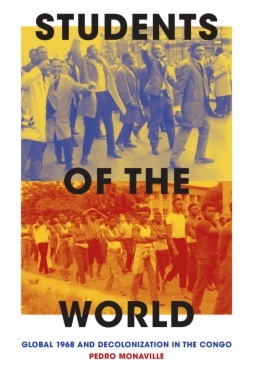On June 30, 1960—the day of the Congo’s independence—Prime Minister Patrice Lumumba gave a fiery speech in which he conjured a definitive shift away from a past of colonial oppression toward a future of sovereignty, dignity, and justice. His assassination a few months later showed how much neocolonial forces and the Cold War jeopardized African movements for liberation. In Students of the World, Pedro Monaville traces a generation of Congolese student activists who refused to accept the foreclosure of the future Lumumba envisioned. These students sought to decolonize university campuses, but the projects of emancipation they articulated went well beyond transforming higher education. Monaville explores the modes of being and thinking that shaped their politics. He outlines a trajectory of radicalization in which gender constructions, cosmopolitan dispositions, and the influence of a dissident popular culture mattered as much as access to various networks of activism and revolutionary thinking. By illuminating the many worlds inhabited by Congolese students at the time of decolonization, Monaville charts new ways of writing histories of the global 1960s from Africa.
- Cover
- Contents
- Preface. Memory Work in the Age of the Cinq Chantiers
- Note on Toponyms�����������������������
- Acknowledgments
- Introduction. The School of the World
- Interlude I. Postal Musings
- One. Distance Learning and the Production of Politics
- Two. Friendly Correspondence with the Whole World
- Interlude II. To Live Forever Among Books
- Three. Paths to School
- Four. Dancing the Rumba at Lovanium
- Interlude III. To The Left
- Five. Cold War Transcripts
- Six. Revolution in the (Counter) revolution
- Seven. A Student Front
- Interlude IV. The Dictator and the Students
- Eight. (Un)natural Alliances
- Nine. A Postcolonial Massacre and Caporalisation in Mobutu’s Congo
- Epilogue. The Gaze of the Dead
- Notes������������
- Bibliography�������������������
- Index������������

